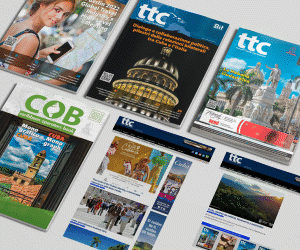By Gino Engels, Co-founder and Chief Commercial Officer at OTA Insight, HN Hospitality Net
The coronavirus is an ongoing tragedy for those worst affected, and everyone’s focus should be on containing it. However, it’s also wreaking havoc on the global travel industry, and it’s sensible to look for ways to navigate the crisis and mitigate some of the negative commercial impact in the year ahead.
With the global spread of the virus forcing some countries into lockdown and airlines cancelling both domestic and international flights from certain regions, both leisure and business travel segments are taking a major hit. The impact is made much more severe since China was the world’s largest outbound tourism market in 2019, with 159 million outbound travellers accounting for 12.2% of all outbound travel and spending USD 275 billion.
As the virus reaches deeper into other countries, conferences and events are being cancelled. The result is double-digit drops in occupancy in many regions, such as South Korea and Europe, which is losing Euro 1 billion per month in tourism dollars as Italy grapples with its own outbreak. In other regions, the impact is thankfully not as severe, as 88% of US travelers have yet to cancel their travel plans and strong interest in tropical destinations in Mexico and the Caribbean.
No one can predict how long it will take to get the pandemic under control. Hotels everywhere should plan for a protracted downturn that upends financial projections for the year ahead. With that in mind, here are four things that you can do to navigate the impact of the coronavirus on your hotel’s business.
Strategy #1: Be proactive
Ignoring the crisis won’t do any good. And neither will panicking. You must lead by example. Be proactive in how you are addressing it with both staff and guests. Even if your hotel seems somewhat insulated, now is the time to prepare.
- Staff. Engage your staff with the issue of maintaining a safe and sanitised space for everyone. Re-emphasise the importance of washing hands and walk through the standard operating procedure for cleaning guest rooms and other common areas to ensure proper sanitisation. The greater visibility that this issue has with staff, the better-prepared they’ll be to continue delivering service excellence in the face of a global pandemic. You also want to avoid any potential PR issues relating to negativity associated with nationalities known to be most affected by the virus; train your staff to treat this issue with sensitivity and to understand the realities of coronavirus transmission.
- Guests. Avoid triggering panic but you also want to show that your property is putting guest health and safety first. Consider communicating with guests related to your hotel’s health procedures and offer a direct line of communication for any guests that have concerns. If your hotel is especially exposed to international travellers, consider waiving cancellation fees or offering easy rebooking. And it goes without saying, for any guests from affected countries, to be especially sensitive and understanding about their situation.
Strategy #2: Stay calm
In times of crisis, whether economic downturns or global pandemics, it pays to stay calm. Don’t react by reducing rates or slashing marketing budgets. Even if your compset panics and triggers a race to the bottom with spiralling rates, you must remain calm. Set expectations with ownership and provide a detailed marketing plan of action as to what you’re doing and why you’re doing it.
Your “stay calm” marketing plan should include:
- Creative campaigns. Target existing segments that can fill occupancy gaps. For instance, your past guests are excellent sources of potential bookings, so build out special packages and market exclusively to those guests.
- Reviewing your segments. Use your RMS and BI tools to analyse which countries your guests come from and how far in advance each they typically book. This will help with building a marketing plan and related promotions, or focus on where else you can turn your attention to, which brings us on to the next point.
- New segments. Turn your past guest database into lookalike audiences, or segment existing lookalike audiences even more. Smaller segments make it easier to personalise offers and optimise messaging. You could also create packages targeted at these new segments.
- Channel mix. Certain segments/channels are less price-sensitive than others. Avoid dropping prices on channels that target those segments and leverage opaque channels that obscure your rates. Adjusting your channel mix gives you greater control for when business returns and rates must go back up.
- Drive markets. By targeting those closest to your hotel, you increase the chances of overcoming travel issues related to air travel. Since people are more hesitant to take those bigger trips due to health concerns, they may be looking for nearby getaways. Your hotel should find these bright spots and orientate your marketing towards these opportunities.
In a globally interconnected industry such as travel, the shock waves reach far and wide, so take care to prepare. Be proactive and keep your hotel top-of-mind with travellers still looking for a place to stay.
Strategy #3: Maintain relevance
Maintaining relevance in a walled-off world is incredibly difficult. Travel brands must make concerted efforts to continue engaging audiences to stay top-of-mind once travel resumes. The primary way to engage during these types of crises is content. It’s about telling your story and maintaining awareness, regardless of whether or not a traveller can make a booking and travel to your destination.
In China, as consumers stay home to avoid infection, entertainment and social media consumption are skyrocketing. That’s a major opportunity to engage consumers. Museums and other institutions are turning to virtual tours and other online content to continue engagement with consumers, says China Luxury Advisors’ Jessica Dai, who handles museum accounts:
“We are pivoting to a storytelling angle. [We’re] showing behind-the-scenes stories, taking readers behind the artworks, and using art to be empathetic in this time.”
Hotels can take a similar approach and use content to stay top-of-mind and communicate directly with guests. Eventually, travel restrictions will be lifted and many will relish the newfound freedom to get out of town. You want to be sure that your hotel is top-of-mind when that decision is being made.
Strategy #4: Use data to adjust in real-time
Sudden dips in revenue leave little wriggle room, as labour costs remain high even if revenue is lower. In these situations, it’s more important than ever to use data to adjust your operation in real-time.
There are two key focus areas:
- Rates. As demand drops, so do prices. Hotels have to make very careful calculations on how competitive their rates should be. A race to the bottom is dangerous, as it may be difficult to regain price premiums once recovery is underway. Even so, you need to price competitively to capture business. Just be very careful: if your compset is undercutting you, consider how you might offer more value rather than simply responding with ever-lower rates. Is there a package you can create that boosts perceived value?
- Demand. The other area in which data drives decisions in crises is around labour and scheduling. You should look carefully at available demand data from both your own systems and market sources to schedule well. It’s going to be tough to give everyone the hours they’re used to in this low-revenue reality.
So the smarter you can be at scheduling, the better you can balance your staff’s needs with the business reality.While data won’t reduce the pain of this sudden demand drop, it will help you maintain optimal rates and schedules so that your hotel is left in good shape and ready to compete once the crisis has run its course. That “stay the course” sentiment was echoed by Barry Diller, who has taken the reins of global travel giant Expedia:
“All we’re trying to do is separate what we absolutely believe is the effect of the virus from our ongoing business, so we can prepare ourselves and make that ongoing business as strong as possible when this thing’s over.”
And that’s all you can do: use all the tools at your disposal to navigate the crisis and make it to the other side. With the right blend of data-driven decisions, creative marketing and empathetic operations, hotels can make it through this crisis and be ready when business bounces back.

MORE NEWS











